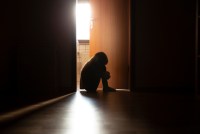Represión de Trump empuja a inmigrantes víctimas de violencia doméstica a las sombras
Además de ser más vulnerables a la violencia sexual, los inmigrantes enfrentan múltiples desafíos de salud física y mental, según los investigadores.
ICE Crackdown Heightens Barriers for Immigrant Domestic Violence Victims
Immigrant victims of domestic violence have long encountered hurdles when seeking help from police and courts. The Trump administration’s immigration crackdown has made victims without legal status even more afraid to report abuse, advocacy groups say.
The Foster Care System Has a Suicide Problem. Federal Cuts Threaten To Slow Fixes.
Children and young adults in the U.S. foster care system suffer from mental health disorders and die by suicide at far higher rates than the general population, yet the system doesn’t uniformly screen and treat children who are at risk.
Little Tracking, Wide Variability Permeate the Teams Tasked With Stopping School Shootings
Several states require schools to assemble teams of law enforcement and education officials to identify students who could become mass shooters and intervene before it’s too late. But some experts say the efforts often face a lack of guidance and significant pressure, putting them at risk of maligning innocent students.
Décadas de programas nacionales contra el suicidio no han frenado estas muertes
Durante los últimos 20 años, funcionarios federales han lanzado tres estrategias nacionales de prevención del suicidio, incluida una anunciada en abril.
Decades of National Suicide Prevention Policies Haven’t Slowed the Deaths
Despite years of national strategies to address the suicide crisis in the U.S., rates continue to rise. A chorus of researchers and experts say the interventions will work — but that they’re simply not being adopted by state and local governments.
Federal Panel Prescribes New Mental Health Strategy To Curb Maternal Deaths
The leading causes of pregnancy-related deaths in the United States — including suicides and fatalities linked to substance use disorders — stem from mental health conditions. Now a federal task force has recommended strategies to help women who are at risk during or after pregnancy.
Proponen estrategia federal de salud mental para frenar muertes maternas
La depresión perinatal afecta a un 20% de las mujeres en Estados Unidos durante el embarazo, el posparto o ambos.
Native American Communities Have the Highest Suicide Rates, Yet Interventions Are Scarce
Native Americans die by suicide at a higher rate than any other racial or ethnic group, yet research into effective and culturally appropriate interventions is uncommon.
As Younger Children Increasingly Die by Suicide, Better Tracking and Prevention Is Sought
Decades-long systemic shortcomings have left suicide among children ages 5 to 11 poorly tracked and addressed. Now, as rates appear to be rising, advocates are strengthening efforts to screen for problems and prevent deaths in younger children.
Mental Health Respite Facilities Are Filling Care Gaps in Over a Dozen States
As three years of pandemic stress accelerated an ongoing nationwide mental health crisis, peer respite programs diverted patients from overburdened emergency rooms, psychiatric institutions, and behavioral therapists. Now, more “respites” are opening.
In Hard-Hit Areas, COVID’s Ripple Effects Strain Mental Health Care Systems
In areas hit hard by the coronavirus, such as Detroit, behavioral health care workers have been overburdened and forced to scale back services at the same time people battling mental health disorders became more stressed and anxious.















